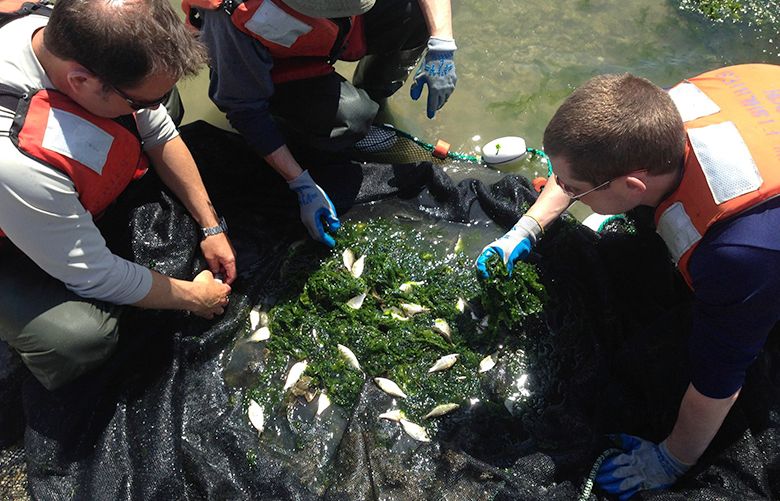Originally published April 6, 2018 at 6:00 am Updated April 9, 2018 at 2:04 pm

Researchers have found Puget Sound chinook are picking up our drugs as they swim through effluent of wastewater-treatment plants, and it may be hurting their survival.
By Lynda V. Mapes
Seattle Times environment reporter
Antidepressants. Diabetes drugs. High-blood-pressure medication. Puget Sound chinook are doing our drugs, and it may be hurting them, new research shows.
The metabolic disturbance evident in the fish from human drugs was severe enough that it may result not only in failure to thrive but early mortality and an inability to compete for food and habitat.
The response was particularly pronounced in Puget Sound chinook — a threatened species many other animals depend on for their survival, including critically endangered southern-resident killer whales.
The research built on earlier work, published in 2016, that showed juvenile Puget Sound chinook and Pacific staghorn sculpin are packing drugs including Prozac, Advil, Benadryl and Lipitor among dozens of other drugs present in tainted wastewater discharge.



